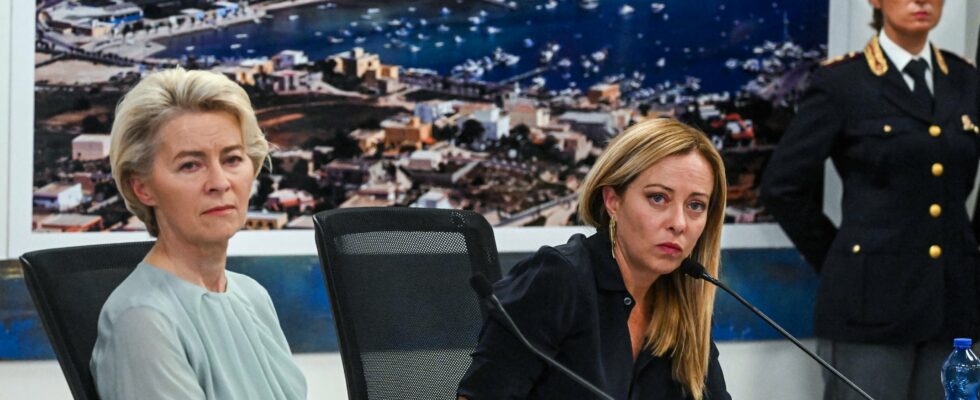This Thursday, October 17, the second European Summit opens in Brussels since the elections last June and the new European political situation is already being felt. The conservative right and the radical right emerged from the vote strengthened, while the Renew liberals and the environmentalists lost ground. Result: the subject of immigration is already entering the discussions.
The Twenty-Seven reached an agreement on May 14, after five years of tough negotiations on the Asylum and Migration Pact. This provides for a solidarity mechanism between European countries, so that the migratory burden falls more equitably on member countries, as well as a new filtering procedure. at the borders of the Union, so that asylum seekers who have little chance of seeing their application successful are rejected more quickly.
But some member states would like to go further, starting with Giorgia Meloni’s Italy which has just inaugurated a migrant detention center in Shëngjin in Albania (therefore outside the borders of the Union). The controversial agreement could be emulated, since it has already obtained the support of Viktor Orban, the Hungarian Prime Minister. Ursula Von der Leyen also pleads for member states to consider “innovative solutions” like the one introduced by Rome.
In 2023, more than 435,000 people whose right to asylum was rejected in one of the countries of the European Union were subject to an administrative obligation to leave the territory, but only 91,000 were removed. Among them, around a quarter left France or Germany. For many member countries, the priority is therefore to be able to ensure that the obligations to leave the territory are followed up. According to Italy and Hungary, studying asylum requests outside the national territory could avoid this situation.
These discussions take place in a context of withdrawal by European countries. In September, Germany announced that it intended to intensify its border controls, at the risk of slowing down freedom of movement between member countries. Poland and Finland would like to directly attack the conditions for granting the right to asylum – a right enshrined in international treaties. They thus hope to slow down the migratory flows at their borders, exploited by Russia and Belarus since the start of the war in Ukraine.
